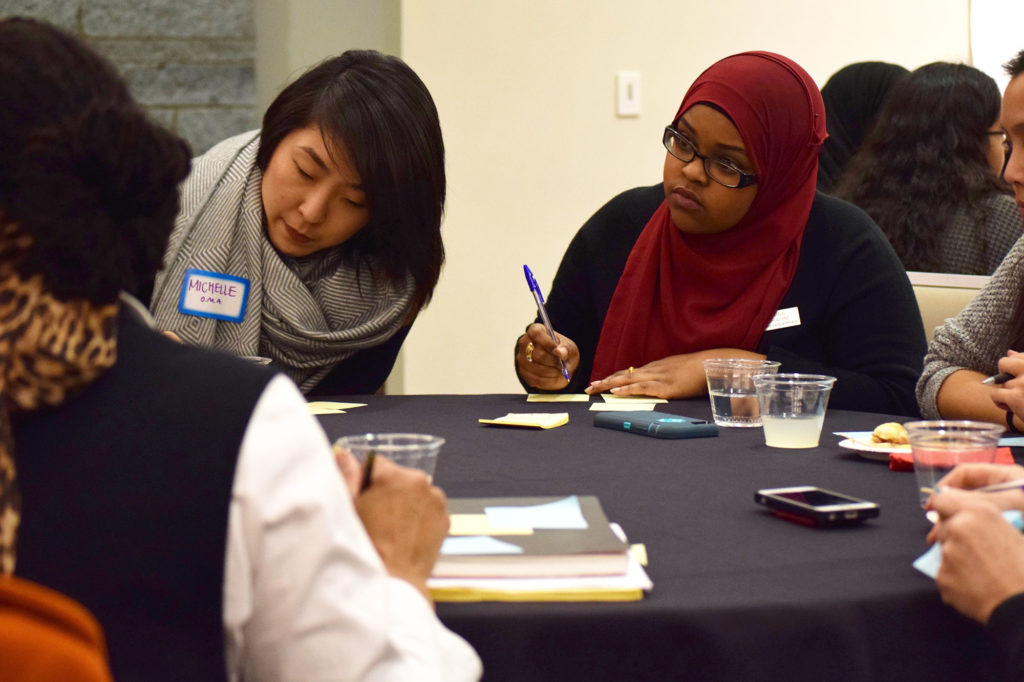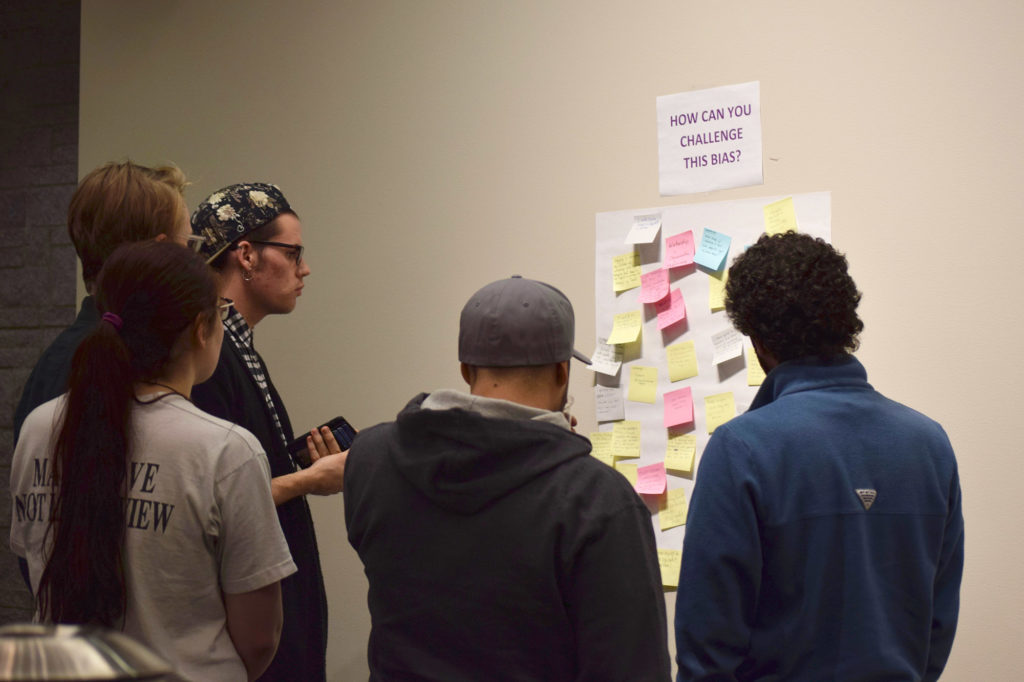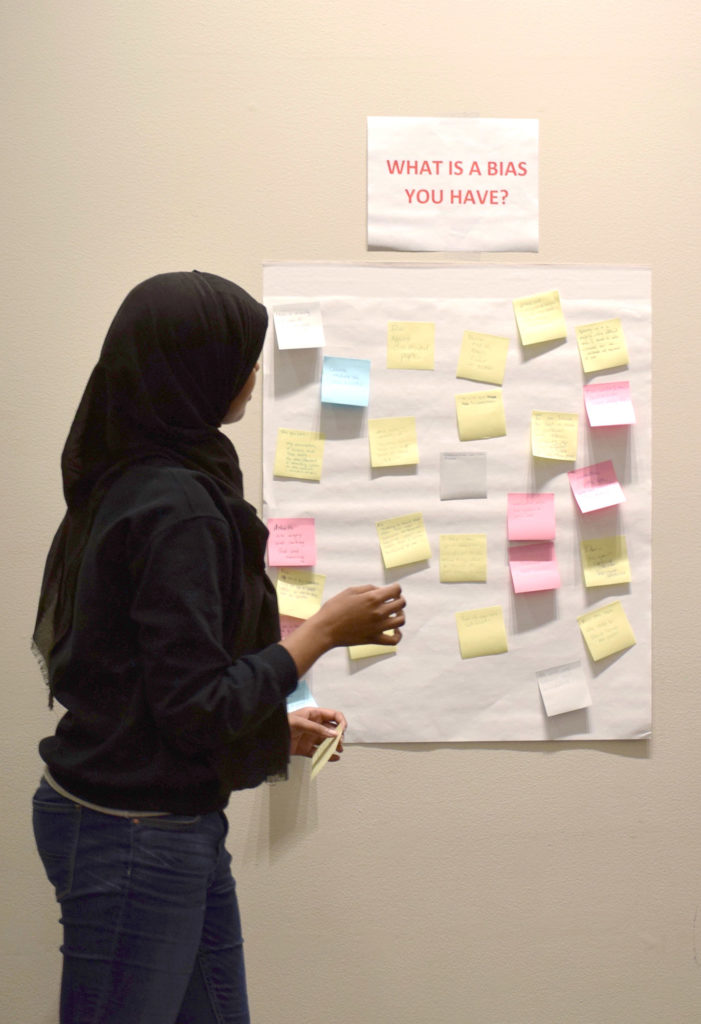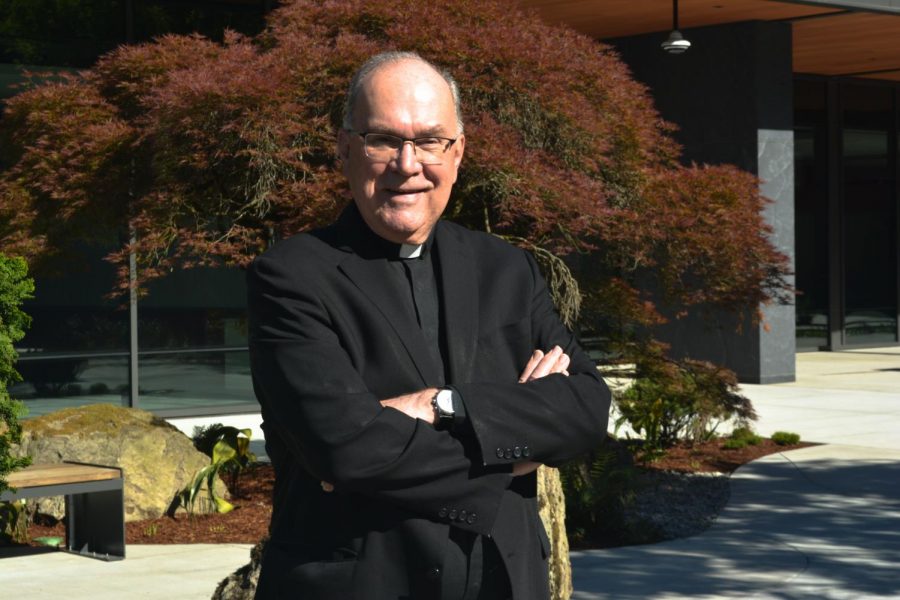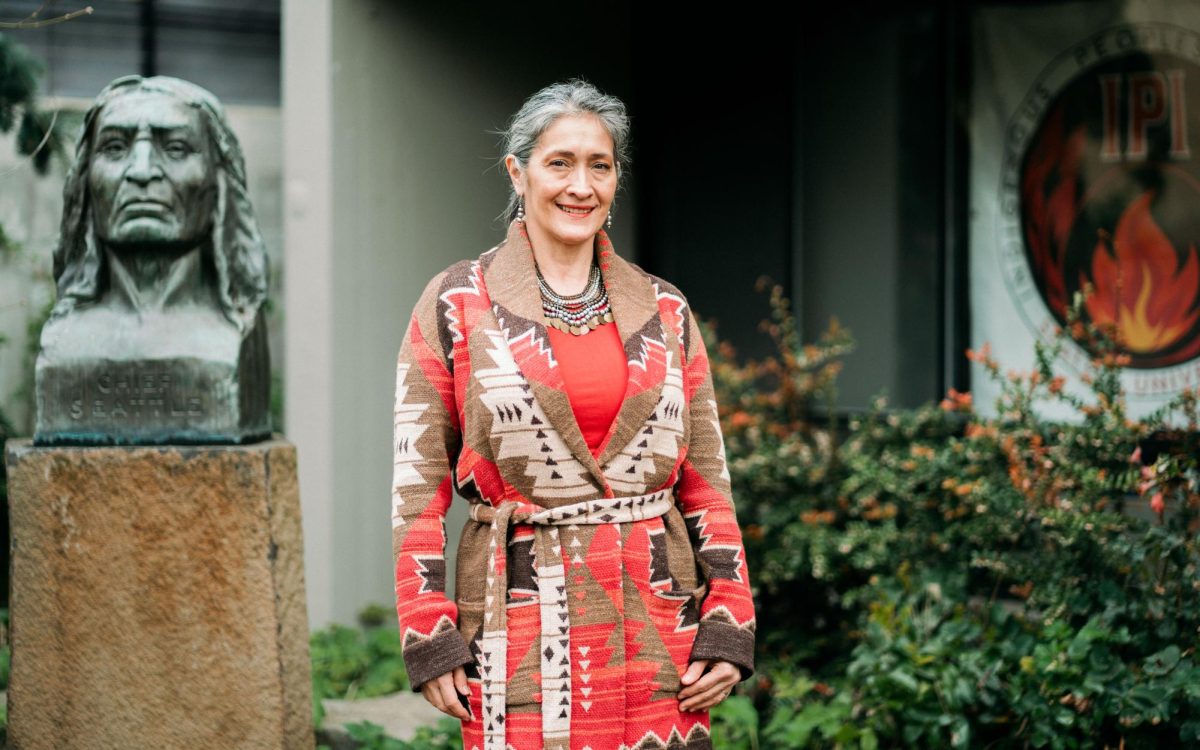Following President Donald Trump’s executive order, which restricted travel to and from seven Muslim-majority countries in the Middle East, Campus Ministry, in collaboration with the Office of Multicultural Affairs, hosted an event called “Bias and Hate Crime in the Current Political Climate.” The event featured a selection of speakers both from campus and the surrounding community.
“We felt like it was important to address that this is an issue that is happening, even in our community in Seattle,” said Multi-Faith Campus Minister Amina Ibrahim. “And that here are the tools for students that are experiencing it, and here are the ways that we can prevent it from going further than what it is now.”
Ibrahim opened the event by discussing the rapid progression of Islamophobia since Inauguration Day on Jan. 20. She said that they started planning the event a few weeks ago and wanted to address the issues of hate crimes and biases in the country, especially toward Muslim Americans.
“Hate crimes have increased tremendously in the last few months, even in our so-called progressive, liberal city—they happen here too.”
Ibrahim said the in the last few weeks in particular, the rhetoric surround immigration and Muslim Americans has worsened.
“What are you, as an individual, doing to help marginalized groups? What is your responsibility as a person?” she asked the crowd at the event. “Tonight, we must ask each other and ourselves these uncomfortable and difficult questions, because it is unacceptable for us to be comfortable during our current political climate.”
This event featured Dale Watanabe, assistant director at the International Student Center, Arsalan Bukhari, executive director at the Center for American-Islamic Relations in Washington, and a hate crime survivor from the University of Washington.
Watanabe spoke about Japanese internment during World War II, or as many are beginning to refer to it, “Japanese incarceration.”
“Internment refers to legally permissible detention of enemy aliens in a time of war,” he said. “Those that were detained were American citizens.”
Watanabe spoke about the gradual escalation to incarceration during World War II, drawing connections to modern-day attitudes toward Muslims.
“Now’s the time for all of us to be silent no more,” he said. “Many of us were silent, back in 1942, when they came for my grandparents and family. But I hope, in the people of 2017, that we will not repeat the same tragic mistake we did in 1942.”
Bukhari spoke about bystander prevention, as well as how to make a difference as an individual in this presidency. He emphasized that individual citizens have a great amount of power to create change.
“You have the power to educate millions of people and to change the minds of hundreds of thousands of people,” Bukhari said. “You all have a cell phone, right? So, I know all of us, when we hear something cool, when we learn about something, we post on Facebook for our friends, our ‘bubble’ to hear about, right? So the easy way to educate millions of people, is to simply write the same thing, but email it to [email protected].”
When the hate crime survivor spoke, she provided evidence to the fact that Islamophobia is real, even in Seattle and on university campuses.
“It was after five o’clock and I was leaving my classroom, and I was walking down the staircase,” she said. “I was struck by a man with a glass bottle. He hit me right on the face, on the right side. Didn’t say nothing, didn’t do anything, he just hit me, started laughing and walked away.”
This student was at a loss for why someone would attack her.
“Was it because I’m a Muslim? Was it because I was wearing a hijab?” she said through tears. “I told [the police] that I didn’t really know what his reason was for attacking me like that. And that’s not right. No one should ever have to be treated like this.”
As for how to prevent hate crimes in the future, this survivor called for education and activism.
“We need everyone to start spreading awareness, and we need government officials to start speaking up,” she said. “Without their power, it’s not gonna get any better.”
Ibrahim echoed these calls to action.
“Be aware,” she said. “Be aware that people are going through some very real experiences and fears. The survivor that spoke, that happened to her a week and a half after the election, on a college campus, where no one spoke out against it. Things are happening, and you can’t just ignore it.”
Ibrahim concluded, “This is no time for complacency.”
Josh may be reached at
[email protected]






